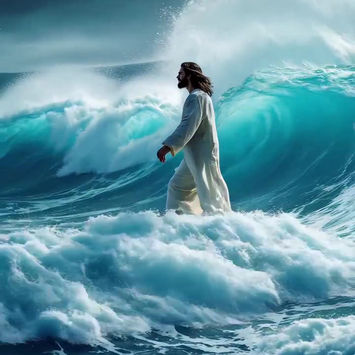
"YahWeh - fallen god"
Cinematic initiative
screenplay:

Main menu:
screenplay:

"The name YahWeh is more than a title — it is the very rhythm of life. “Yah” mirrors the sound of inhalation, and “Weh” the soft whisper of exhalation. Each breath we take unknowingly speaks His name, making YahWeh not just a distant deity, but the sacred pulse within us — the breath of existence itself."
"YahWeh – Fallen God"
A Cinematic Saga That Reimagines Creation
The Vision: A New Cinematic Mythology
YahWeh – Fallen God isn’t your typical mythological film. This is a bold, visionary retelling of the creation story — not from the outside looking in, but through the eyes of the very being who shaped it... and then shattered inside it.
Rooted in ancient wisdom — from the Book of Enoch to the Upanishads, from Sumerian myths to Kabbalistic texts — the film dives deep into a universe born of sound, light, and divine fracture. In this story, YahWeh is no longer the all-knowing, all-powerful ruler on high. He is an extradimensional creator who, in birthing the cosmos, becomes trapped within it — fragmented across space and time.
His essence — spirit, soul, and mind — are scattered. And as ages pass, he’s remembered by many names: Jehovah, Javé, Brahma, Pangu. The gods of old become echoes of his broken self. Until one day, YahWeh’s forgotten fragments cross paths with Yeshua — not as his “son,” but as his reflection — sparking a cosmic struggle for memory, justice, and spiritual wholeness.
What Makes This Story Different?
This film blends sacred myth with speculative fiction — part spiritual odyssey, part sci-fi epic, part philosophical mirror. It explores what happens when the Creator falls into His own creation… and forgets who He is.
Set across collapsing dimensions, dreamlike realities, and the unconscious spaces of the human soul, this story isn't about gods fighting for thrones — it’s about them searching for themselves. At the heart of it all: YahWeh and Yeshua Nazarine(Jesus). Not as father and son, but as two halves of the same divine being, trying to remember who — and what — they truly are.
“Before He formed the world, He was One, without a second.
When He chose to create, He fell into division.
Light became vessels, and vessels broke.
From the fragments came the story of all things.”
— Zohar I:15a
A Universe of Symbol and Soul
This isn’t just mythology — it’s a reinterpretation of humanity’s oldest stories through a modern lens. YahWeh – Fallen God suggests that all the gods and myths we've ever known might be scattered memories of one great fall… and one forgotten source.
Visually stunning and spiritually charged, the film reintroduces characters like Luxcifer, Seshat, and Yeshua as timeless archetypes — bridges between East and West, chaos and order, matter and meaning. The story is rich with sacred symbols, ancient languages, and a haunting, poetic style that merges the mystical with the cinematic.
More Than a Movie — A Journey
This film isn’t just for lovers of mythology or science fiction. It’s for anyone who has ever asked:
Where do we come from? What went wrong? And how do we return to wholeness?
YahWeh – Fallen God is a story about exile and return, identity and fragmentation, memory and divinity. It speaks to a global audience hungry for more than explosions and CGI — an audience that wants depth, emotion, and mythic truth that lingers long after the screen fades to black.
The Sacred Texts That Inspire This Script
-
The Bible & Ethiopian Bible – divine creation, exile, and covenant
-
The Book of Enoch – the fall of angels and celestial hierarchies
-
The Rig Veda – origin stories and the cosmic balance
-
The Zohar – mystical reflections on divine fragmentation
-
Nag Hammadi Scriptures – Gnostic myths, Sophia, and the demiurge
-
Sefer Yetzirah – creation through sound, letters, and numbers
These sources aren’t just references — they’re lifeblood. They form the mythic backbone of the script, giving the story its spiritual fire and emotional gravity.
Why This Film Matters
YahWeh – Fallen God stands at a powerful crossroads — combining the intellectual depth of The Matrix, the mythic scope of American Gods, and the visual ambition of Dune. It's made for those who seek more from cinema: layered meaning, beauty, transcendence.
Built for a Universe
The concept of a shattered God remembered across civilizations opens endless creative doors:
-
Future films and prequels
-
Graphic novels, animated series, AR/VR experiences
-
Philosophical dialogues and multicultural retellings
Visual Identity
The film blends cosmic horror, sacred geometry, and ancient symbology — building a look that is both deeply mystical and stunningly cinematic. Think temples of light floating in voids of darkness. Think reality bending like glass. Think echoes of lost languages spoken through dreams.
A Call to Visionaries
We’re seeking producers, agents, partners, and creatives who believe in the power of bold, transformative storytelling. This isn’t just a script. It’s a living myth, waiting to be made real.
Join us. Help bring "YahWeh – Fallen God" to life.
Let’s create something unforgettable — a cinematic work that doesn’t just entertain, but awakens.
introduction

characters, legends and gods
Vishnu’s whispered secret and Shiva’s smeared ash, a Avatar born
Bellow are our motion picture main participants. Click on their names to know more!
Once an elder in ain sof our creator falled and now lack his spirit
the Preserver, the All-Pervading One—the silent sustainer of worlds
the Unbound Destroyer, whose third eye burns away the illusion
Yahweh’s judgment, Shiva’s fire, and Vishnu’s mercy converged
fierce, dark, terrifying, compassionate, and liberating Hindu deity
fierce, dark, terrifying, compassionate, and liberating Hindu deity
Vishnu’s whispered secret and Shiva’s smeared ash, a Avatar born
the lightbringer, the firstborn who chose truth over obedience







